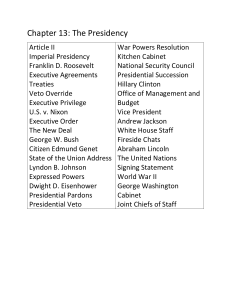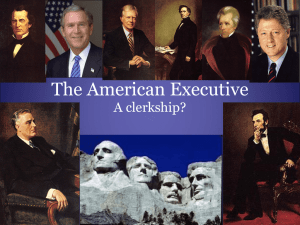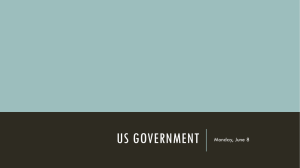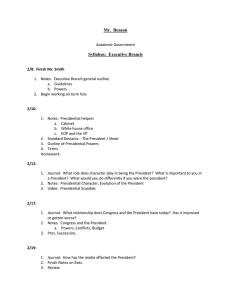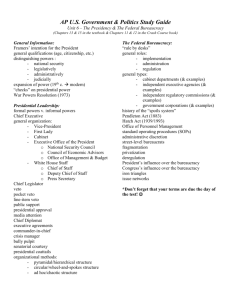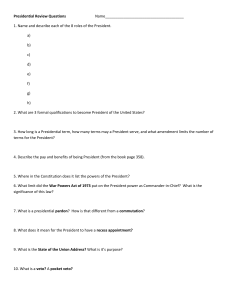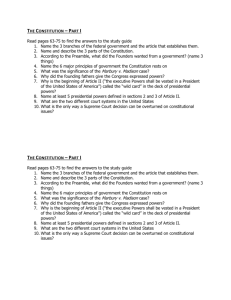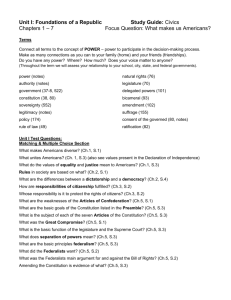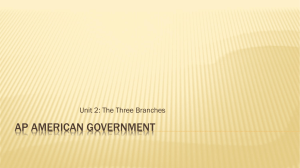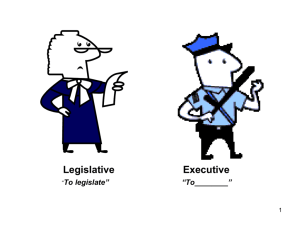Crafton Hills College Lecture #16: The Presidency
advertisement
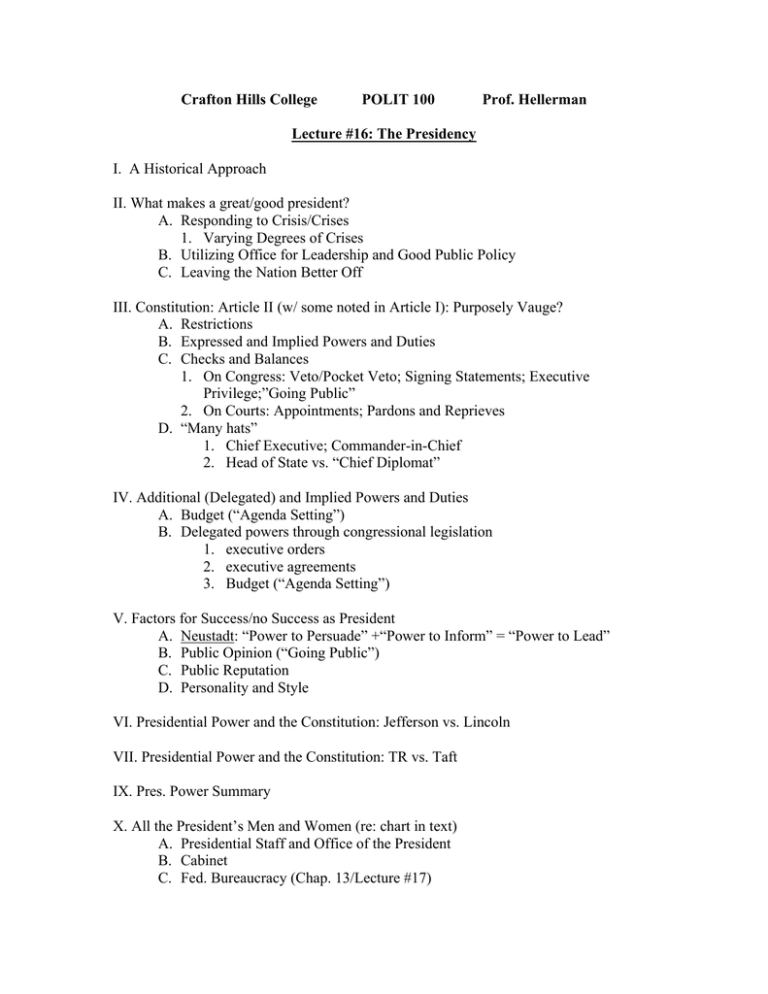
Crafton Hills College POLIT 100 Prof. Hellerman Lecture #16: The Presidency I. A Historical Approach II. What makes a great/good president? A. Responding to Crisis/Crises 1. Varying Degrees of Crises B. Utilizing Office for Leadership and Good Public Policy C. Leaving the Nation Better Off III. Constitution: Article II (w/ some noted in Article I): Purposely Vauge? A. Restrictions B. Expressed and Implied Powers and Duties C. Checks and Balances 1. On Congress: Veto/Pocket Veto; Signing Statements; Executive Privilege;”Going Public” 2. On Courts: Appointments; Pardons and Reprieves D. “Many hats” 1. Chief Executive; Commander-in-Chief 2. Head of State vs. “Chief Diplomat” IV. Additional (Delegated) and Implied Powers and Duties A. Budget (“Agenda Setting”) B. Delegated powers through congressional legislation 1. executive orders 2. executive agreements 3. Budget (“Agenda Setting”) V. Factors for Success/no Success as President A. Neustadt: “Power to Persuade” +“Power to Inform” = “Power to Lead” B. Public Opinion (“Going Public”) C. Public Reputation D. Personality and Style VI. Presidential Power and the Constitution: Jefferson vs. Lincoln VII. Presidential Power and the Constitution: TR vs. Taft IX. Pres. Power Summary X. All the President’s Men and Women (re: chart in text) A. Presidential Staff and Office of the President B. Cabinet C. Fed. Bureaucracy (Chap. 13/Lecture #17)

